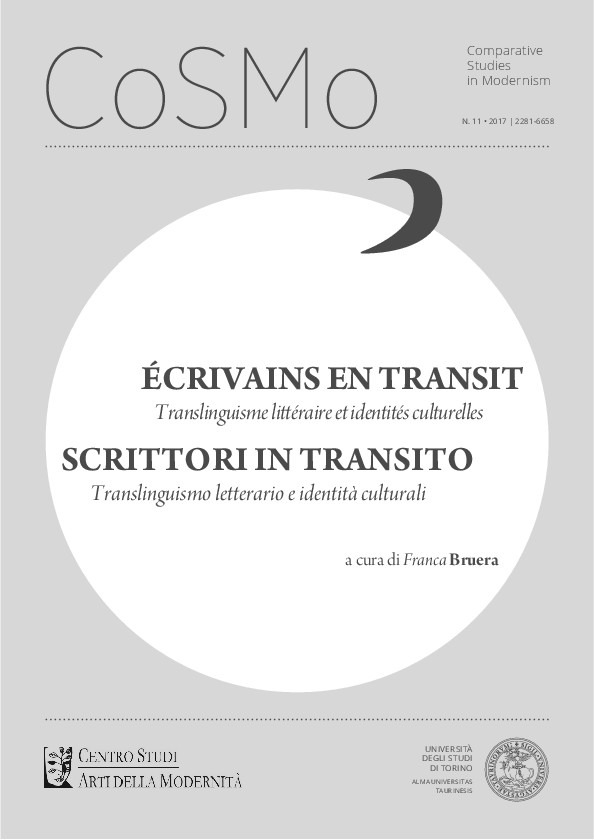L’Écriture translingue comme conversion (Hector Bianciotti, Andreï Makine)
Parole chiave:
French, Literary translingualism, Literary posture, Andreï Makine, Hector Bianciotti
Abstract
This article focuses on the recent rise in singularity of translingual literature, a symptom of which may be seen in Andreï Makine’s recent election to the French Academy. In his reception speech, rather than truly pay homage to Assia Djebar who preceded him, Makine chose to signal the particularity of the translingual writer’s condition. In contrast to the somewhat problematic relation to French emerging from many (post)colonial texts, which he sketches fairly schematically, Makine presents translingual writing as a privileged locus for the defence and illustration of French. What made this audacious intervention possible is, I suggest, Makine’s capacity to refashion a literary posture embodied by previous translingual writers: that of the foreign writer converted to French. Before Makine, Hector Bianciotti is certainly the translingual writer who presented most clearly his switch to writing in French as a literary conversion. Considering a key television interview and exploring Bianciotti’s French autobiographical trilogy, this article seeks to explore the formation of a literary posture of great significance to the contemporary presentation of translingual writing on the literary scene.Downloads
I dati di download non sono ancora disponibili
Pubblicato
2017-12-27
Sezione
Focus
Gli autori mantengono i diritti sulla loro opera e cedono alla rivista il diritto di prima pubblicazione dell'opera, contemporaneamente licenziata sotto una Licenza Creative Commons - Attribuzione che permette ad altri di condividere l'opera indicando la paternità intellettuale e la prima pubblicazione su questa rivista.








